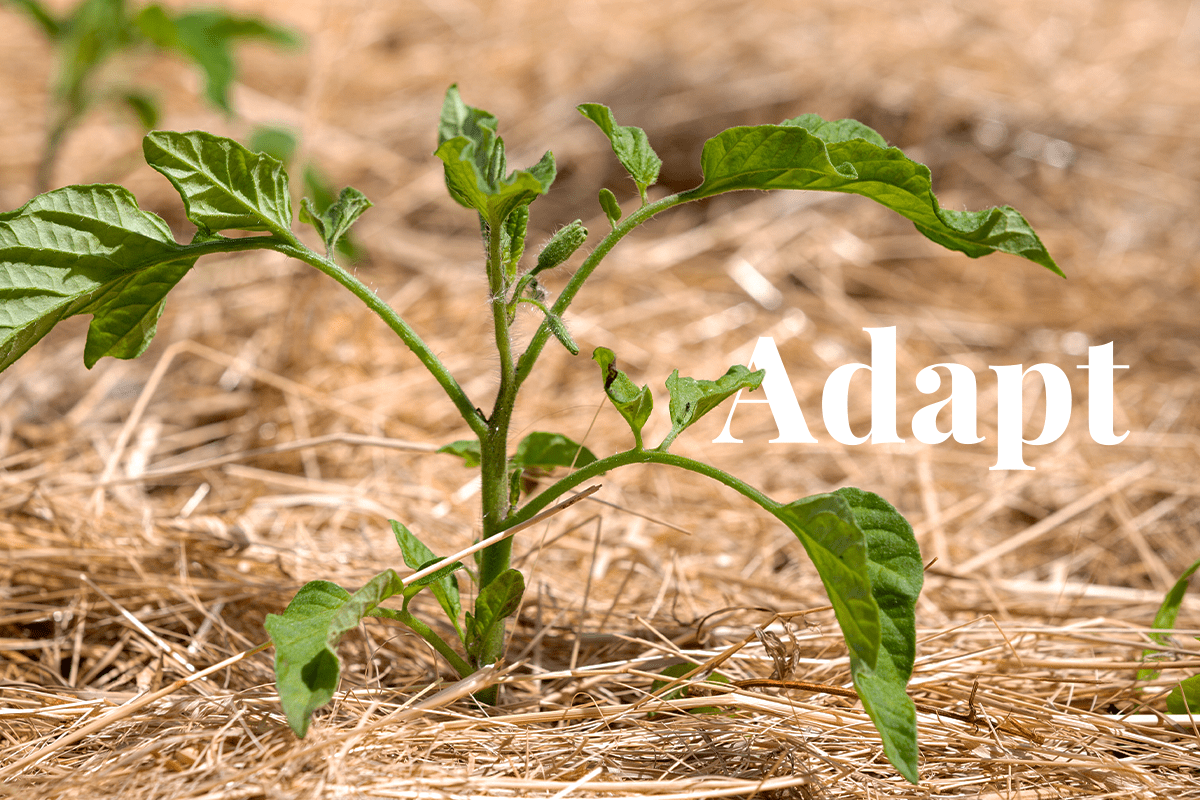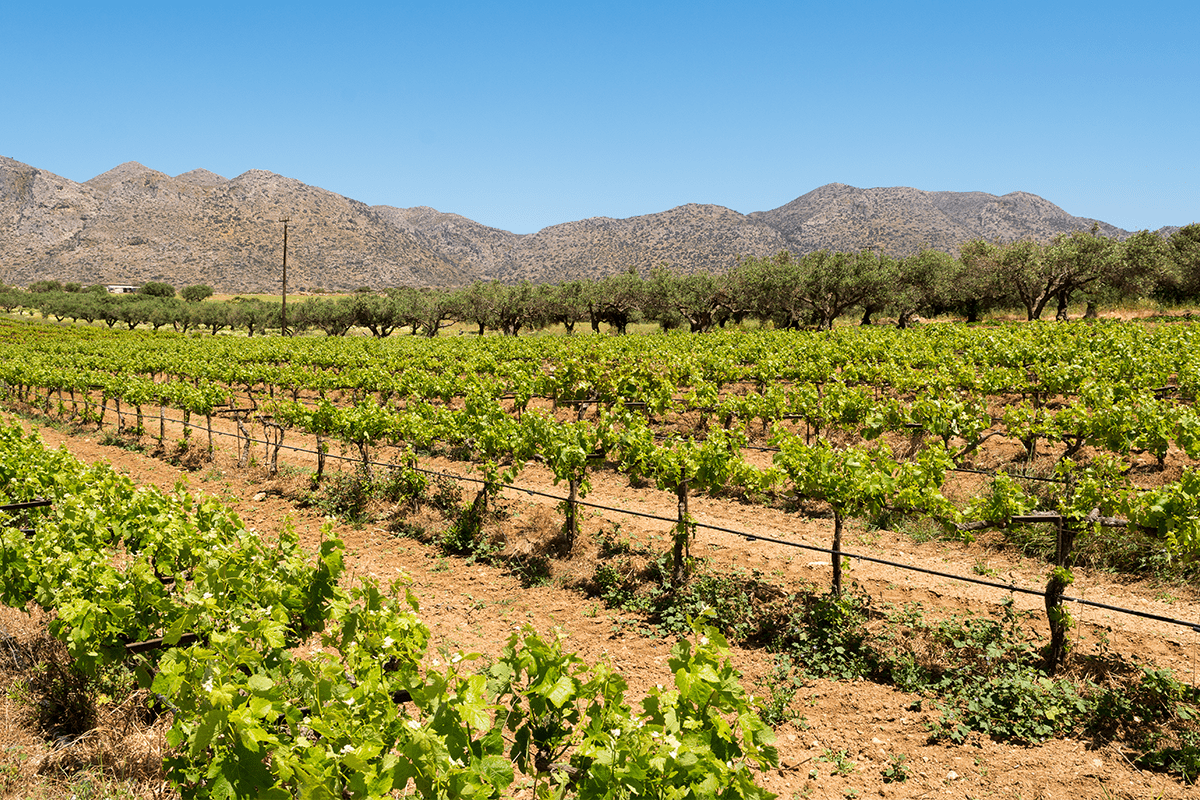The industrialisation of agriculture has allowed us to produce larger quantities of crops than ever before, but it also led to a significant increase in water usage. Agriculture is responsible for 70% of the world's water usage, and as water becomes scarcer, dry farming has become an increasingly popular option for farmers. So, what exactly is dry farming, how does it work, and what are its benefits?
 Young tomato plant growing in a mulch bedding of straw.
Young tomato plant growing in a mulch bedding of straw.
What is dry farming?
Dry farming is a method of crop cultivation that involves growing crops without irrigation in regions that receive low levels of rainfall. This type of farming relies on the natural moisture retained in the soil and specific farming techniques to ensure crops receive enough water to grow. Dry farmers can create an optimal environment for crop growth and survival without irrigation through deep tillage, mulching, selecting suitable crops, and spacing plants adequately.
Dry farming not only reduces water consumption but also results in crops with more concentrated flavours and nutrients. However, dry farming requires a high level of skill and experience, as farmers must be able to read the soil and adapt their techniques to changing weather conditions.
The history of dry farming
Principles of dry farming have been used for thousands of years in arid regions such as the Mediterranean, the Middle East, and North Africa. It is believed that China has a history of more than 8.000 years in dry farming. This farming method was widely popularised in the 19th century. It was quickly adopted among farmers in drier areas of North America who were looking for a way to grow crops without relying on irrigation.
Read more: Sustainable farming practices and the long-term survival of civilisations
How does dry farming work?
Dry farming relies on specific techniques to ensure that crops receive enough water to grow. These techniques include:
- Deep tillage: involves loosening the soil to allow for better water penetration and retention.
- Mulching: involves covering the soil around the plant with a layer of organic material such as bark, straw, or leaves. This helps to retain moisture in the soil and suppress weeds.
- Plant spacing: Dry farmers often plant crops at wider intervals to reduce competition for water.
- Crop selection: Certain crops are better suited for dry farming than others. Dry farmers often select crops that are naturally adapted to arid conditions, such as tomatoes, grapes, and olives.
 Olive trees and vineyards spread over the foothills of the mountains in Crete, Greece.
Olive trees and vineyards spread over the foothills of the mountains in Crete, Greece.
The benefits of dry farming
Dry farming offers several notable benefits compared to traditional irrigation farming. Firstly, it promotes sustainable agriculture as it requires significantly less water usage, making it an attractive option in regions with limited water resources or areas facing droughts. This water conservation also makes it an environmentally friendly practice, reducing the strain on water resources and preserving natural ecosystems.
Read more: 10 Agricultural techniques for water conservation
Additionally, dry farming has been shown to produce crops that are more flavorful, nutrient-dense, and often of higher quality. This is because the reduced water stress encourages deeper root growth, leading to a more robust and complex root system that can extract nutrients more effectively from the soil. As a result, dry-farmed crops can be more resilient, flavorful, and better adapted to the specific environmental conditions of the region. Finally, adopting dry farming could also reduce overall production costs, as it eliminates the need for expensive irrigation infrastructure and reduces energy consumption.
Challenges of dry farming
While dry farming offers many benefits, it also comes with its own set of challenges. Dry farmers must be careful to balance the amount of water available with the needs of their crops. If the soil becomes too dry, crops can wilt and die. On the other hand, if the soil becomes too moist, it can lead to root rot and other problems.
Dry farming also requires a significant amount of skill and experience. Farmers must be able to read the signs of the soil to know when to till, mulch, and plant. They must also be able to select the right crops and manage them carefully to ensure a successful harvest. Such challenges only signal the need for adequate implementation—where the environmental conditions deem it favourable. Dry farming comes as a highly viable alternative for farmers in drier environments.
DGB supports sustainable land management techniques
DGB Group is confident that sustainable land management techniques can pave the way towards a green revolution. By implementing techniques such as dry farming, regenerative agriculture, conservation tillage, and agroforestry, we can restore degraded lands, promote biodiversity, and ensure food security for future generations.
Nature-based solutions harness the power of the natural world and its processes, creating a more sustainable and equitable food system that benefits both people and the planet. With a deep commitment to sustainability and a focus on supporting nature to thrive, we are proud to be at the forefront of this green revolution. By working together with communities, farmers, and governments, we can create a healthier and more sustainable world for all.
Contact our experts to learn how you can contribute




